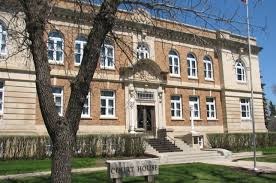A Court of Queen’s Bench decision on a local lawsuit could have far-reaching implications for public education in Saskatchewan, and possibly across the country.
Last week, Justice Donald Layh ruled on a 12-year-old challenge by the Good Spirit School Division (GSSD) of Christ the Teacher Catholic Schools’ (CTTCS) right to receive funding for non-Catholic students.
Layh’s verdict was that the government must stop funding non-minority faith students to attend separate schools.
Although the judge acknowledged minority faith, meaning Catholic, education rights are protected under the Constitution Act and Saskatchewan Act, he wrote that the Constitution “does not provide a constitutional right to separate schools in Saskatchewan to receive provincial government funding respecting non-minority faith students.”
Furthermore, he ruled, the Saskatchewan Act “which provides constitutional protection against discrimination in the distribution of moneys payable to any class of school, only protects separate schools to the extent they admit students of the minority faith.”
The judge also noted that the Province was in violation the Charter of Rights and Freedoms under Section 2(a) which requires religious neutrality from government and under Section 15(1), which guarantees equality.
“When the government funds Catholic schools respecting non-Catholic students, which I have found is an unconstitutionally protected benefit to the Catholic faith, but does not equally fund other faith-based schools to educate non-adherents, discrimination is evident on the face of the enabling legislation and regulations,” he wrote.
The litigants responded to the ruling immediately.
“We’re pleased that a ruling has come forward, and we’ll be working with our partners in the Catholic system and the province to implement Justice Layh’s ruling,” said Quintin Robertson, GSSD director of education.
Christ the Teacher has so far been silent, but Tom Fortosky, past-president of the Saskatchewan Catholic School Boards Association responded on behalf of Catholic education in the province.
“This greatly affects students and parents in Christ the Teacher School Division in particular, and families throughout the province,” Fortosky wrote. “We’ll take some time to go over the 230-page decision, consult with our lawyers and process what this means for the division, for Catholic education in Saskatchewan and for all of the families who choose Catholic education.”
The Government of Saskatchewan, co-defendant in the case with CTTCS, took some time to respond, but by Monday, Premier Brad Wall was vowing to fight the Court noting government lawyers were working on ways “to successfully manoeuvre around this court ruling.”
Wall said, “This simply cannot stand,” invoking the prospect of overcrowded public schools and empty Catholic classrooms.
“The last thing we need to do is resurrect this whole separate school question,” he said. “I think things work quite well right now in the province.”
Meanwhile, other jurisdictions are closely monitoring the aftermath of the April 20 ruling.
“The ruling will have far-reaching consequences if applied to other provinces, including Ontario, where publicly funded secular and separate school districts compete for students as birth rates decline and governments provide funding regardless of a family’s religious affiliations,” wrote Caroline Alphonzo in the Globe and Mail on April 21.
Recognizing the practical and logistical ramifications of the decision will be significant, Justice Layh stayed the decision for approximately 14 months. It is scheduled to take effect June 30 2018.




